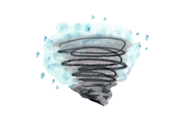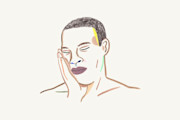How do I know if I have insomnia?
What is the main cause of insomnia?
How can I stop my insomnia?
Is it possible to cure insomnia?
If you're asking these questions, we empathize with your plight. Insomnia is incredibly frustrating and unsettling. What's more, the result of insomnia—loss of sleep—can contribute to or exacerbate mental health issues.
Sleep deprivation can cause headaches, dizziness, sluggish reflexes, slow concentration and irritability among other issues.
The negative effects of sleep deprivation can last much longer than a drowsy day after a poor night’s sleep—and they can be truly life-threatening.
Long-term effects of sleep deprivation include:
Higher risk of strokes or heart disease
Higher risks of asthma attacks
Higher risk of mental illnesses like depression
Severe mood swings
A form of therapy called CBT-I has been proven to help people with insomnia to get measurable increases in sleep.
The Monarch Directory by SimplePractice can help you find a therapist who specializes in CBT to discuss whether CBT-I might stop your insomnia or at least reduce it.

Signs and symptoms of insomnia
Has lack of sleep become so normalized that we’ve grown to accept it as a part of human life? And what’s the difference between insomnia and just one rough night of sleep?
Maybe you're waking up at 3a.m. every night for no reason at all. Maybe you have a hard time falling asleep in the first place. Symptoms of insomnia include:
Difficulty falling asleep at night
Waking up throughout the night
Not feeling well-rested after a night's sleep
Difficulty paying attention, focusing on tasks, or remembering
Irritability, depression, or anxiety
Increased errors or accidents
Ongoing worries about sleep

Who does insomnia affect?
Insomnia's estimated to affect around 30% of American adults.
While insomnia can affect anyone, research suggests that women are about twice as likely to suffer from insomnia than men.
Hormones are responsible for some of this divide, but there are other more sociological factors at play, too.
For one thing, women are more likely to bear the brunt of caregiving responsibilities in a family, which comes with a unique set of stressors, and this anxiety can easily negatively impact sleep.
Women are also more likely to have mood disorders than men, and that can leave a person vulnerable to disturbed sleep.
What causes insomnia?
Insomnia is most often triggered by everyday stress and anxiety, but it can also result from chronic emotional issues like major depression or PTSD.
It can also result from medical conditions such as pregnancy, as well as certain chronic illnesses.
Some causes of insomnia are simply structural variables that are out of our control, like a change in work schedules.
Some common causes of insomnia are:
Sleep-related disorders
PTSD
Frequently changing work schedules
Frequent travel
Poor eating habits
Prescription or over-the-counter medications
Medical conditions
Caffeine
Nicotine
Alcohol
Being over the age of 60
Changes in sleep patterns
Lack of exercise, low physical activity
Gender and hormones
Worrying about not sleeping as you toss and turn in the dark is not actually a solution, and can actually exacerbate insomnia symptoms.
Insomnia treatments
Depending on the type of insomnia you have, a clinical and holistic approach can be pursued through a combination of prescribed medication, therapy, and organic daily routines.
Behavioral or holistic remedies include:
Relaxation techniques
Meditation
Yoga
Some clinical options include:
Therapy and particularly CBT-I has been proven to help insomnia
Prescribed sleep medication
Over-the-counter sleep medication
Antidepressants
Vitamin supplements like Melatonin, or natural remedies
How to get help with insomnia
Therapists who specialize in CBT-I help clients with sleep issues and insomnia to get measurable sleep improvement.
Particularly if you’re struggling with insomnia, CBT-I is one of the most effective treatments to help you get back on track—and back to sleeping through the night.
The Monarch Directory by SimplePractice can help you find a therapist who specializes in CBT to discuss whether CBT-I might help you resolve sleep disturbances.

You can browse therapists who accept your insurance, and book a telehealth video counseling session, an in-person therapy session, or a free 15-minute initial consultation.
You can quickly and easily view their calendars and book a therapy session to prioritize improving your sleep.
As Arianna Huffington advises in her book, The Sleep Revolution: it’s probably time to “renew your estranged relationship with sleep.”
Everyone deserves to be well-rested, and seeking treatment for insomnia is a crucial part of sustaining our physical and mental well being, and life longevity.
READ NEXT: Tips for Developing a Good Sleep Hygiene Routine
Need to find a mental health professional who can help support you in your struggles with insomnia and sleep? The Monarch Directory by SimplePractice can help you find therapists near you with availability and online booking.
Bhaskar, S., Hemavathy, D., & Prasad, S. (2016). Prevalence of chronic insomnia in adult patients and its correlation with medical comorbidities. Journal of Family Medicine and Primary Care, 5(4), 780. https://doi.org/10.4103/2249-4863.201153
CDC - Sleep Hygiene Tips - Sleep and Sleep Disorders. (2020). Retrieved October 30, 2020, from https://www.cdc.gov/sleep/about_sleep/sleep_hygiene.html
Insomnia - Symptoms and causes. (2016). Retrieved October 30, 2020, from Mayo Clinic website: https://www.mayoclinic.org/diseases-conditions/insomnia/symptoms-causes/syc-20355167
Sateia, M. J. (2014). International Classification of Sleep Disorders-Third Edition. Chest, 146(5), 1387–1394. https://doi.org/10.1378/chest.14-0970
Sleep Deprivation. (2020, August 18). Retrieved November 2, 2020, from Department of Neurology website: https://www.columbianeurology.org/neurology/staywell/sleep-deprivation
What Are Sleep Disorders? (2015). Retrieved October 30, 2020, from Psychiatry.org website: https://www.psychiatry.org/patients-families/sleep-disorders/what-are-sleep-disorders
Why Women Are Twice As Likely To Have Insomnia Than Men. (2016). Retrieved October 30, 2020, from Uofmhealth.org website: https://healthblog.uofmhealth.org/health-management/3-reasons-women-are-more-likely-to-have-insomnia





